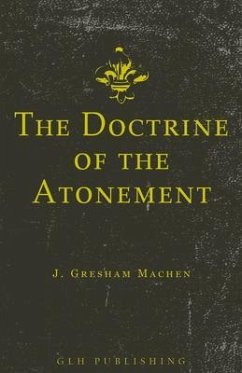
Doctrine of the Will (eBook, ePUB)

PAYBACK Punkte
0 °P sammeln!
In "Doctrine of the Will," Asa Mahan delves into the intricate interplay between freedom and divine sovereignty, exploring the complexities of human agency through a robust theological lens. Mahan's literary style is both didactic and contemplative, drawing upon rich philosophical traditions while engaging with contemporary debates in 19th-century American theology. His work is meticulously structured, weaving through scriptural interpretations and philosophical inquiry, ultimately arguing for a balance between human will and divine predestination, a theme resonant in the broader context of th...
In "Doctrine of the Will," Asa Mahan delves into the intricate interplay between freedom and divine sovereignty, exploring the complexities of human agency through a robust theological lens. Mahan's literary style is both didactic and contemplative, drawing upon rich philosophical traditions while engaging with contemporary debates in 19th-century American theology. His work is meticulously structured, weaving through scriptural interpretations and philosophical inquiry, ultimately arguing for a balance between human will and divine predestination, a theme resonant in the broader context of the Second Great Awakening and the rise of Free Will theology. Asa Mahan, a prominent American theologian, and educator, was deeply influenced by the revivalist movements of his time and the emerging debates surrounding free will. His academic background, including his presidency at the Oberlin College, equipped him with a profound understanding of both theology and philosophy, enabling him to articulate complex ideas with clarity. Mahan's personal experiences and his commitment to social justice, particularly in the abolitionist movement, informed his theological perspective, emphasizing the moral responsibility inherent in human freedom. I highly recommend "Doctrine of the Will" to those interested in theology, philosophy, and the dynamics of faith in the modern world. Mahan's compelling arguments challenge readers to reflect on their own understanding of will and moral agency, making this work an essential read for theologians, philosophers, and anyone seeking a deeper comprehension of ethical responsibility in the face of divine authority.
Dieser Download kann aus rechtlichen Gründen nur mit Rechnungsadresse in A, B, BG, CY, CZ, D, DK, EW, E, FIN, F, GR, H, IRL, I, LT, L, LR, M, NL, PL, P, R, S, SLO, SK ausgeliefert werden.













